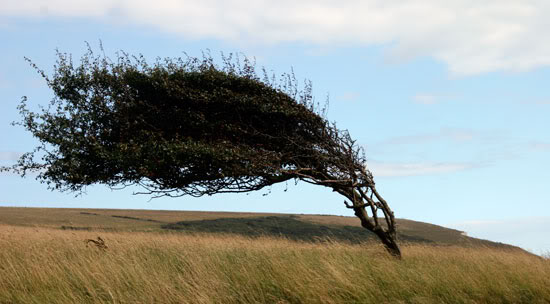Many years ago, I was teaching an adult class in macrobiotic philosophy. After class was over and the students picked themselves up and shambled off to their next class, one woman stayed behind. When the room was empty, she came up to me and said, “You’ve lost a child, haven’t you?”
I was stunned. She was right: I had lost my first son to an illness when he was not quite one year old. But how did she know?
My mind raced back over the previous ninety minutes. There was nothing we’d talked about in class that remotely related to the subjects of parenthood, bereavement, infant diseases, or anything else I could think of that would have conveyed even the slightest clues to that buried bit of personal information.
“I just knew,” she said, and I realized that, looking at her, I just knew too. How? I don’t know. But it showed.
Adversity changes you. It doesn’t simply add an experience to your memory banks, it engraves itself onto your being and alters forever who you are. This is true not only of death and bereavement, but also of such experiences as divorce, disappointment, loss of a friendship, discovery of one’s own deep error, reversal of fortunes, frustration of an ambition, failure or collapse of an enterprise.
I sometimes tell new distributors in our network marketing business that we won’t consider them truly in the business, genuinely committed and in for the long haul, until after they’ve had their first crushing disappointment. Hearing myself say those words sometimes makes me cringe, because it sounds a bit brutal—but it’s the absolute truth.
About your business, and about your life.
Losing a child was an experience so terrible I would not wish it on anyone. Yet at the same time, now that it’s part of who I am, I cannot truly say I wish it gone, either. It certainly made me less cocky (at least a little), and also a bit more capable of empathizing with another’s pain.
Loss and failure shape you; they tend to carve furrows of compassion, understanding and generosity of spirit.
And that was how the woman knew I’d lost a child: she recognized the impact of adversity because it resonated in her, the way an A-440 tuning fork hums when you strike an A on the piano.
While it’s true that loss and failure tend to carve furrows of compassion and understanding, that result is not foreordained. People respond to suffering in different ways. Adversity can deepen character, but sometimes it simply damages character. Faced with difficulty that feels too great to bear, the human being has two choices: break, or bend. In the breaking, we simply become bitter; in the bending, we are humbled and stretched.
You have no choice but to suffer loss; it is an inevitable part of the human journey.
To break or to bend: there is the choice.
(From my last-page editorial in the current issue of Networking Times, which you can also read on the Networking Times site here.)


So true, and it truly is a choice. Though we often don’t want it to be. thanks for sharing!
So true, I was fortunate at 26 years old to have a Doctor that explained that I had two choices. Because traumas do change you. The choice to become bitter or softer. I survived . I chose love, to become softer.
Which I feel is the same here. But I truly love the way you explained it as to Break or to Bend:-) I know how powerful your message is!
Many Blessings and Success!
I was so excited when I read To Break or Bend that I quickly ordered the book. I just received my copy of The Go- Giver today.
Truly,
Catherine Nagle